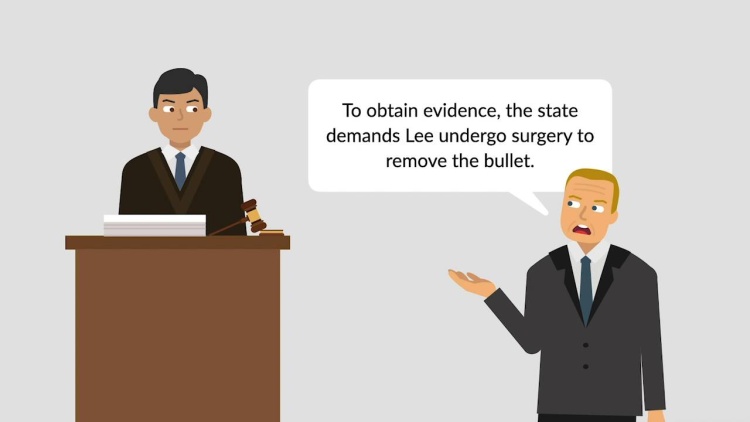Winston v. Lee
United States Supreme Court
470 U.S. 753 (1985)

- Written by Richard Lavigne, JD
Facts
Winston (plaintiff) was involved in a brief gunfight with a shop owner. Winston was shot in the chest. After being identified by the shop owner in the emergency room, Winston was charged with various offenses, including attempted robbery. Prior to trial, the state (defendant) filed a motion seeking to force Winston to undergo surgery that would remove the bullet from his chest so that it could be used as evidence. The trial judge granted the state’s motion. Winston petitioned the state supreme court for writs of prohibition and habeas corpus. The state court denied Winston’s petitions. Winston filed suit in federal district court seeking an injunction on Fourth Amendment grounds. The district court concluded that the surgery would be unreasonable because the risks inherent in the surgery outweighed the state’s interest in obtaining evidence. Nonetheless, the state court declined to issue a preliminary injunction because it concluded that Wilson was unlikely to succeed in his efforts to obtain a permanent injunction. After the district court ruling, an X-ray revealed that the bullet was lodged deeper in Winston’s chest than previously thought. Winston appealed to the federal appellate court. The court of appeals affirmed the district court’s conclusion that the surgery would constitute an unreasonable seizure under the Fourth Amendment. The state petitioned the United States Supreme Court for review.
Rule of Law
Issue
Holding and Reasoning (Brennan, J.)
What to do next…
Here's why 907,000 law students have relied on our case briefs:
- Written by law professors and practitioners, not other law students. 47,100 briefs, keyed to 996 casebooks. Top-notch customer support.
- The right amount of information, includes the facts, issues, rule of law, holding and reasoning, and any concurrences and dissents.
- Access in your classes, works on your mobile and tablet. Massive library of related video lessons and high quality multiple-choice questions.
- Easy to use, uniform format for every case brief. Written in plain English, not in legalese. Our briefs summarize and simplify; they don’t just repeat the court’s language.





